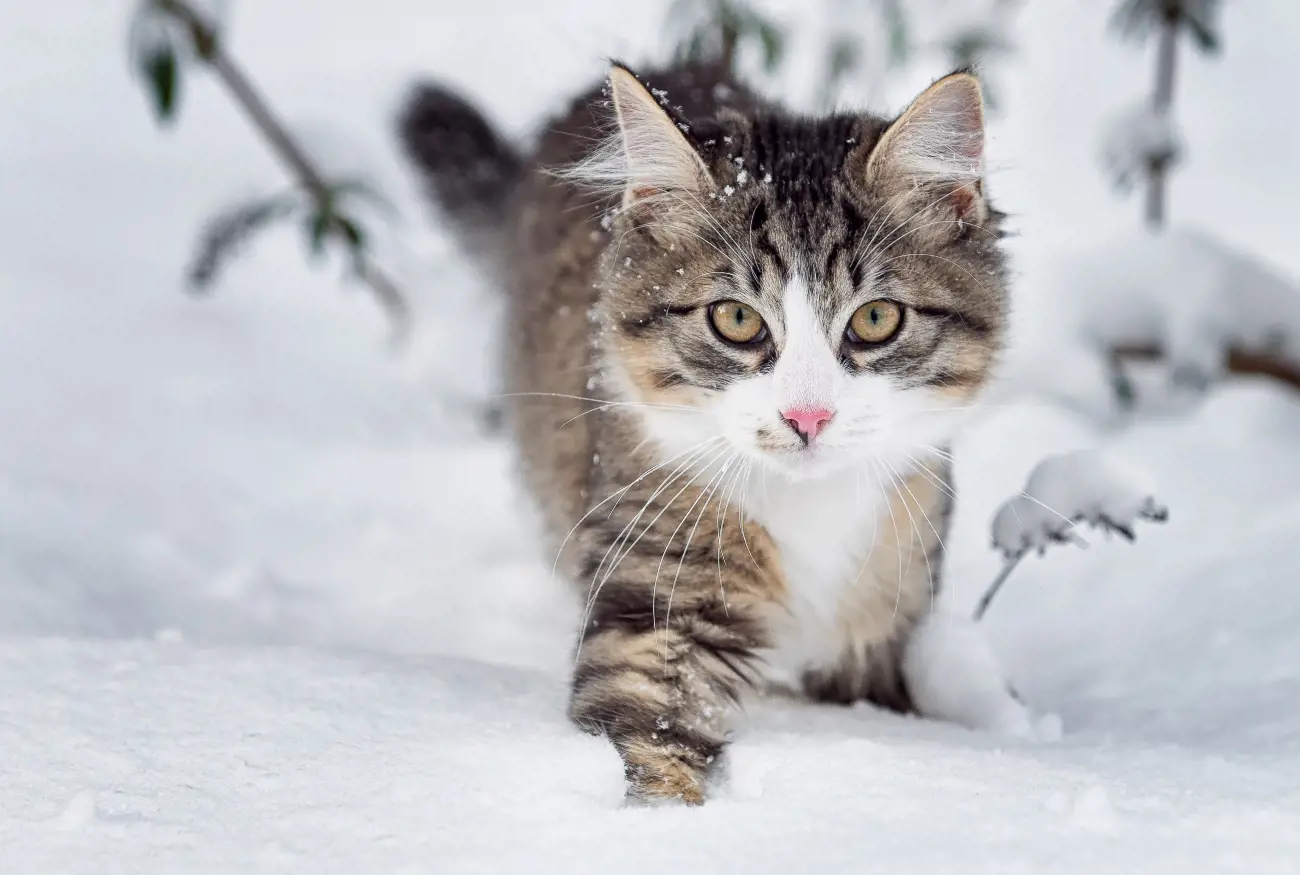How to make your cat happier
11th February, 2021
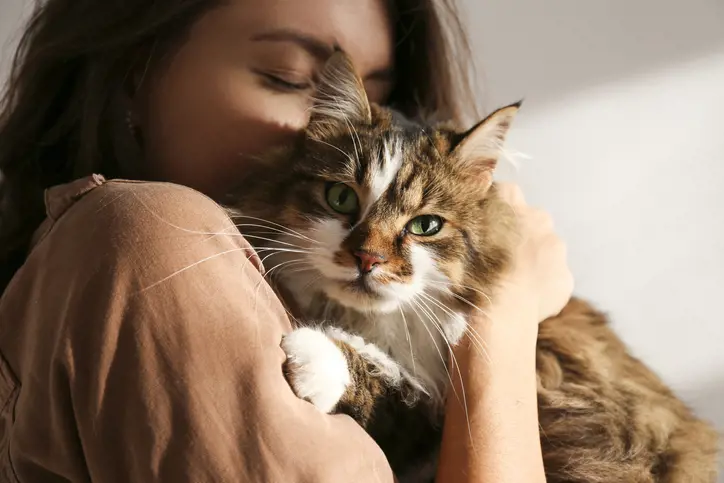
Is your cat as happy as it could be? Sure, you get the odd snuggle on the sofa or purr when you put down its food but is there more you could be doing as an owner to make your feline’s life go from fine to fabulous?
In this article, we’ll look at what you, as a responsible pet owner, can do to make your cat’s life the best it can be. After all, we won’t have them forever so we want to make their time with us as pleasurable as possible.
We’ll discover what a happy – and not-so-happy – cat looks like; what vocal cues to listen out for; what tricks you can use to make them happier; and how you can maintain their happiness when you’re not around.
Your cat’s health will obviously impact on its happiness and quality of life. That’s why insuring your cat is so important. Lifetime policies can cover the costs of accidents or illnesses throughout your cat’s life. Here at Purely Pets we have created 15 levels of lifetime cover so you can choose the one that’s right for you and your feline.
Get a quick quote today and read on to see what else you can do to make your puss’ life just purrfect!
What does a happy cat look like?
According to the Animal Welfare Act, owners are legally obliged to fulfil the five basic needs of their pet. These are:
- Giving them a suitable place to live
- Giving them access to a healthy diet and fresh, clean water
- Giving them the ability to behave normally
- Giving them the chance to mix with appropriate company – or be kept away from inappropriate company
- Providing protection from pain, injury, suffering or disease
When you have met the five basic needs above, you’ll no doubt start seeing the signs of a happy cat. Hopefully you’ll recognise many of these behaviours from your kitty already.
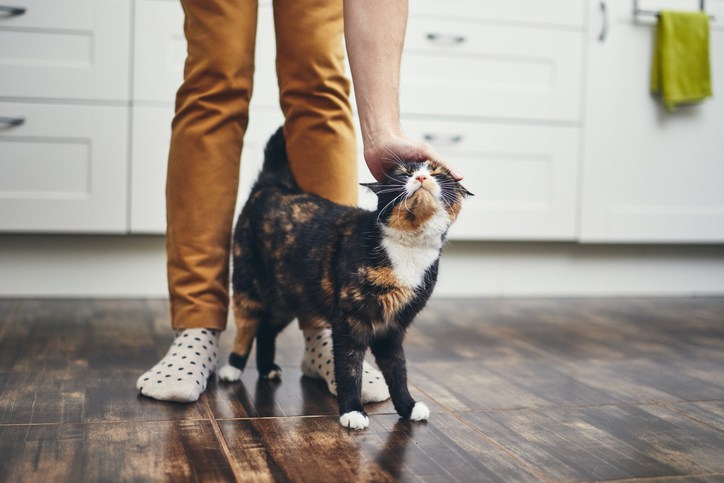
Signs of a happy cat include:
-
A tail that’s waving gently from side to side, but not thrashing
-
Appearing interested in their surroundings
-
Dozing off
-
Gentle grooming
-
Eating, drinking in normal amounts
-
Low-pitched purr
-
Lying on their side, showing you their tummy (but don’t be tempted to stroke it!)
-
Ears upwards and facing forwards
-
Eyes gently closing and opening
-
A general relaxed look
What does a sad cat look like?
Cats love routine and if that routine changes in any way, you may start to see signs of distress, depression or even aggression in your moggy.
Some signs that your cat could be sad, depressed or anxious include:
-
Urinating in a strange place
-
Not toileting as normal
-
Sleeping more
-
Excessive hiding
-
Excessive grooming
-
Loud, strange vocalisations
-
Flattened body or flattened ears
-
Licking their lips
-
Hissing
If you’ve noticed your cat making strange noises lately, check out our other blog – What do these cat noises mean? – for some answers. Remember – their cries could be a sign that they’re in pain. You’ll be able to cover the costs of emergency care with your cat insurance policy.
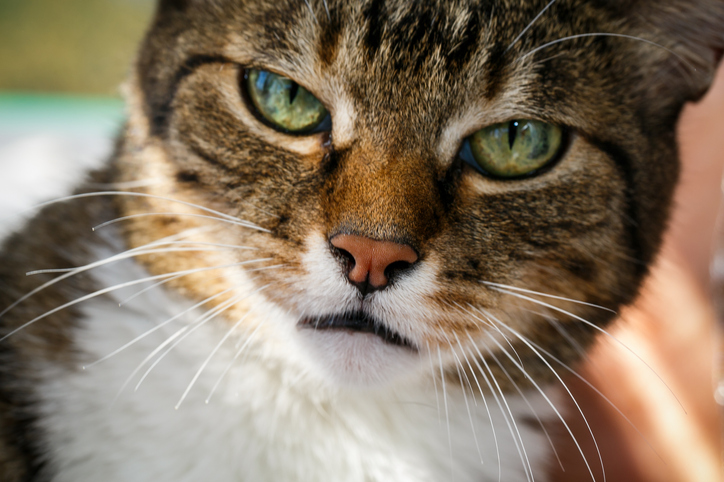
How do you know if your cat is asking for something?
We wish our feline friends could talk to us – how much easier our lives would be if that was the case! They certainly seem to understand when we shout ‘feeding time’! But cats do have clever ways of asking for what they want. You just have to be on the lookout for those tell-tale signs.
Have you noticed your cat weaving in and out of your legs? Do they rub against you when you’re late with their supper? Have they been watching you intently or meowing louder than usual?
These are all signs that they’re trying to get your attention – either for food, play time or some simple affection.
Talking of playtime, the PDSA suggests that you should spend at least two sessions of 20 minutes per day with your playful puss. Playtime is an important way of building that special bond between you and should not be overlooked.
Cats are intelligent creatures that need mental stimulation every day in order to live a happy and fulfilled life – just like us! Regular play will also help them get rid of any excess energy and keep them at a healthy weight.
Playtime is also important for normal development in younger cats, helping them to hone those hunter instincts in a safe and controlled way. The stalk, pounce, play, kill behaviour releases endorphins – the feel-good hormone in felines – keeping them happy and stimulated.
Remember those five basic needs? Playing, jumping and climbing are all part of their ‘normal behaviour’ and should be encouraged.
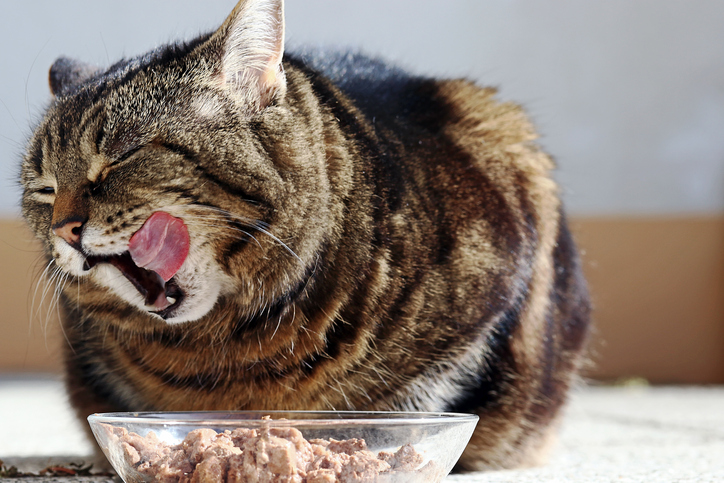
So what kinds of toys and entertainment should you buy to keep your kitty active? After all, there will be times when you’re at work or at the shops when you won’t be around to fulfil that playtime need.
Hitting, jumping, chasing, climbing and scratching are all natural playtime behaviours so you should buy toys or enrichment activities that enable them to do all these things.
Toys don’t have to be expensive – a kitten will have hours of fun with a ball of wool or a rolled up piece of paper. You could get them their own motorised mouse to chase! Or they’ll spend hours running through makeshift tunnels or leaping up onto scratching posts.
Puzzle feeders also present a good brain workout for your puss. This will also help you to control how quickly your moggy gobbles down its food.
Just make sure that none of the toys you buy will present a choking hazard. Cat insurance will be able to help with costs relating to any emergency medical treatment.
What are the signs of inappropriate play?
Playtime should be a happy, safe and rewarding experience for you both. Be aware though that if curious kittens are not exposed to safe, age-appropriate toys from their early years, you could be setting them up for problems later in life.
Don’t use your fingers or toes as playthings when they’re young. This learned response will only get stronger as they get older – which will become much more painful for you when they’re fully grown!
There are times when play can start to become inappropriate. If you notice your cat leaping out or ambushing you as you walk up the stairs, or biting at your hands during play, stop the session immediately.
Don’t try to pick up your cat as this might make things worse. Instead, ask a family member or friend to distract the cat while you move away to safety.
You always have to bear in mind that aggressive or abnormal behaviour could be a sign of illness or injury in your cat. If you’re worried, Purely Pets has a 24-Hour Vet Helpline for all cat insurance policyholders, where you can get answers from trained veterinary professionals.
Don’t suffer in silence. If your cat is consistently displaying signs of anger or aggression, talk to your vet immediately. If you stop interacting with your cat because you’re scared it might hurt you, you may not be able to fulfil its basic needs, which will only lead to further problems down the line.
Can catnip make your cat happier?
You may have heard about a plant called catnip. Cats go crazy for this herb from the mint family and it can be a useful way of encouraging good behaviour in your feline or helping them through stressful situations.
Catnip certainly makes most cats happy but they don’t always react in the same way. Some will become hyperactive, racing around the room and drooling, while others will slip into a more sedate state of mind.
Either way, they experience feelings of euphoria but these usually wear off after about 30 minutes.
If catnip has a more chilled-out effect on your feline, you may want to use it to help them overcome stressful situations – going to the vet or travelling in the car, for example.
On the other hand, if the herb makes your cat go wild with excitement, you could use it to spice up their daily playtimes, especially if they need some encouragement to get off the couch!
You can buy catnip from your supermarket or pet supplies store, but remember to always ask your vet before giving your cat any new tablets or medication.
Will spaying or neutering make my cat happier?
Spaying or neutering is usually done when the animals are quite young, at about four months old. This will not only avoid unwanted pregnancies but will also help with the rush of hormones your kitty is experiencing at this time – whether they’re a girl or a boy.
Spaying or neutering usually has a calming effect on cats. They won’t go into heat, they won’t spray in your house as much, and you’ll minimise the risk of them developing some forms of cancers.
Neutering male cats can also protect them from the feline equivalent of HIV – called FIV – which is spread through cat bites when two males are fighting over a female.
So, overall, unless you’re intending to breed from your cat, neutering or spaying is a good idea and should give you a happier, healthier pet in the long run. It may be a smart idea to look into whether your pet insurance covers spaying.
Also consider looking at the pros and cons of owning a male and female cat to help you make the right decision.
How to keep your cat happy if you go on holiday
We won’t be able to keep our cats happy all of the time – that’s just life. Normal activities such as going on holiday may cause your cat extra stress if they’re going to be left with a stranger or put into a cattery.
If you’re planning on leaving your cat at home, with a friend or relative coming in to check on them regularly, Cats Protection has a handy downloadable checklist that will tell them everything they need to know. This includes things like:
-
What medication your cat is on and how to administer it
-
Feeding times
-
Where the food bowls are kept
-
Where the litter trays are kept
-
Where cat waste can be disposed of
-
The emergency contact numbers for you and the vet
Should you get your cat a playmate?
If you’re a one-cat household, you might think that getting your puss a playmate would be a good idea. And it is, if you’re careful about how you do it!
If you’re adopting a kitten from birth, you may wish to adopt two together so they’ll always have someone to play with, groom with, hunt with and snuggle up with when you’re not around.
If you introduce a kitten into a house with an older cat, the older feline may be able to teach the little one the ways of the world. But don’t bank on it! Older cats may be disrupted by boisterous youngsters, which can lead them to seek solitude elsewhere.
Young cats may steal their food or their favourite position on the sofa, which could lead to aggressive behaviour as your older puss protects its territory. Remember that cat insurance can help you pay for vet fees if a scrap gets out of hand!
If you’re thinking about introducing a puppy into the mix, check out the cat breeds that do best with a canine companion. However, there are several rules about introducing cats and dogs. This should be done slowly and always under supervision. Either animal is at risk of getting hurt if the other lashes out.
Cat insurance or multi-pet insurance from Purely Pets can help you cover the costs of any emergency treatment if things go wrong.
Cat insurance from Purely Pets
Does your kitty look a little off-colour? No one wants their cat to be under the weather. Ensuring your cat’s happiness throughout their lives means having the financial ability to help them when things go wrong.
Here at Purely Pets, we can offer 15 levels of lifetime cover, excess levels from as low as £60, and an online policy management portal so you can access your documents at a time that suits you.
You’ll also have access to a 24-Hour Vet Helpline staffed by veterinary professionals. They’ll be able to help with any concerns you have and get your feline the care it needs.
Call our friendly team for a quote today and give your cat the happy life it deserves.
Policy benefits, features and discounts offered may very between insurance schemes or cover selected and are subject to underwriting criteria. Information contained within this article is accurate at the time of publishing but may be subject to change.
Helpful Pages
Recent Posts

Why do Pugs lick the air?
02/10/24Pet Insurance Quote
- 98% claims paid *
- Claims paid directly to vets
- 24/7 vet video consultations
- Interest free monthly payments
